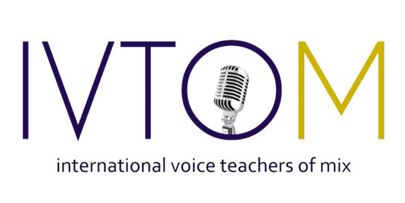Laryngitis
Weekly Teaching Tip – June 30, 2014
By Anna Siciliano
Most of us have a few episodes of hoarseness for a day or two in a given year. Laryngitis though is something to be more concerned about for the singer. Laryngitis is basically edema and inflammation of the vocal folds in the larynx or voice box. Vocal folds become inflamed from overuse, infection or irritation. Vocal folds that are inflamed do not vibrate fully and you can lose your voice. This can range from moderate hoarseness to aphonia or temporary voice loss.
So what should a singer do? If the hoarseness is mild, treat this with partial voice rest, increased fluids and conservative voice use. Drink a lot of water and avoid pushing your voice to sing difficult material.
If the voice loss is severe you should stop singing and see a qualified ENT/Otolaryngologist right away. He or she will look at your vocal folds and they may put you on antibiotics and/or a short course of steroids. Treat this as you would a cold….plenty of fluids, vitamin C and rest……yes VOICE REST TOO!
Reflux can also be a causal factor in laryngitis so make sure you are avoiding acidic foods and stop eating 3 hours before bedtime. See past articles on reflux.
Sometimes after a bout of full laryngitis, it can take a few weeks to get your full singing voice back. If your physician has cleared you to sing, go ahead and start singing but don’t start with your most difficult material. Do a lot of warm ups and pitch glides. Sing easy material for fun.
Please use vocal pacing…..talk, be quiet, talk, be quiet, sing, be quiet. Continuous voice use during the day (both speaking and singing) is hard on muscles that are recovering from swelling. Just as with a knee injury, healing takes time. You would not expect to run a race with a knee that is recovering, yet many singers expect to keep up a full singing schedule after a period of laryngitis. It might not “hurt” but it may hurt your long term vocal health. Be conservative. Exercise the voice, enjoy your voice, but don’t abuse your voice.
If your voice is not returning to FULL performance level, you may need a short course of voice therapy. Voice therapy for the voice, like physical therapy for the large muscles in the body, can rehab the vocal folds in a healthy way. Ask questions, work with a team and don’t ignore your symptoms.
Speaking and Singing for a Lifetime!
Anna Siciliano, M.A. CCC/SLP
Speech Pathologist/Clinic Voice Specialist
Program Coordinator
Intermountain Voice and Swallowing Center
Anna.siciliano@imail.org

